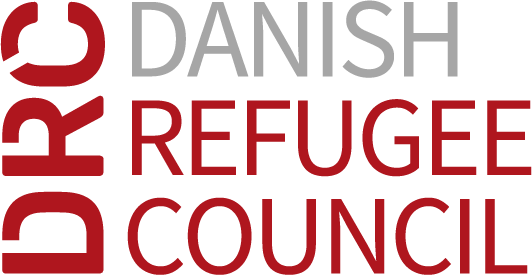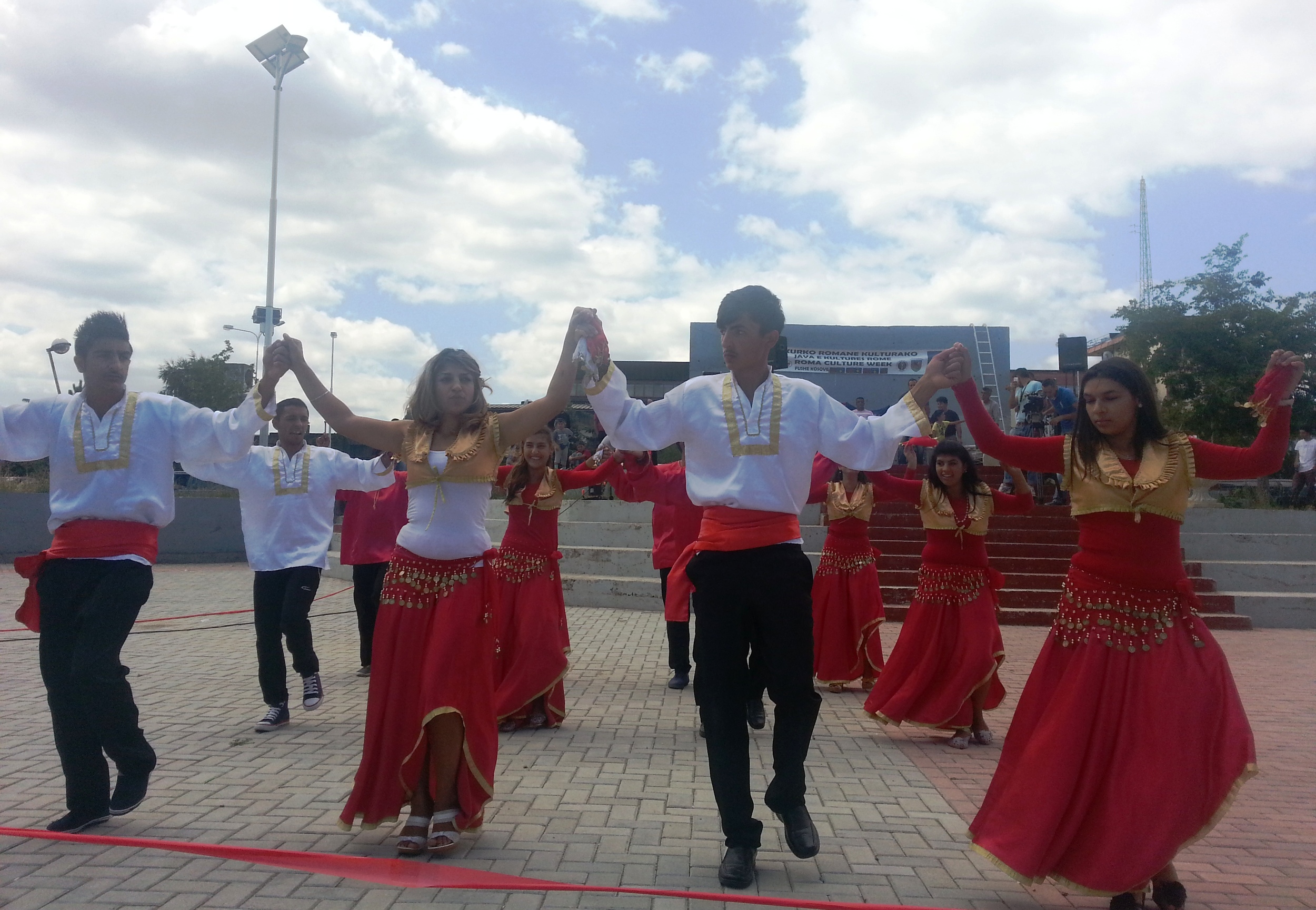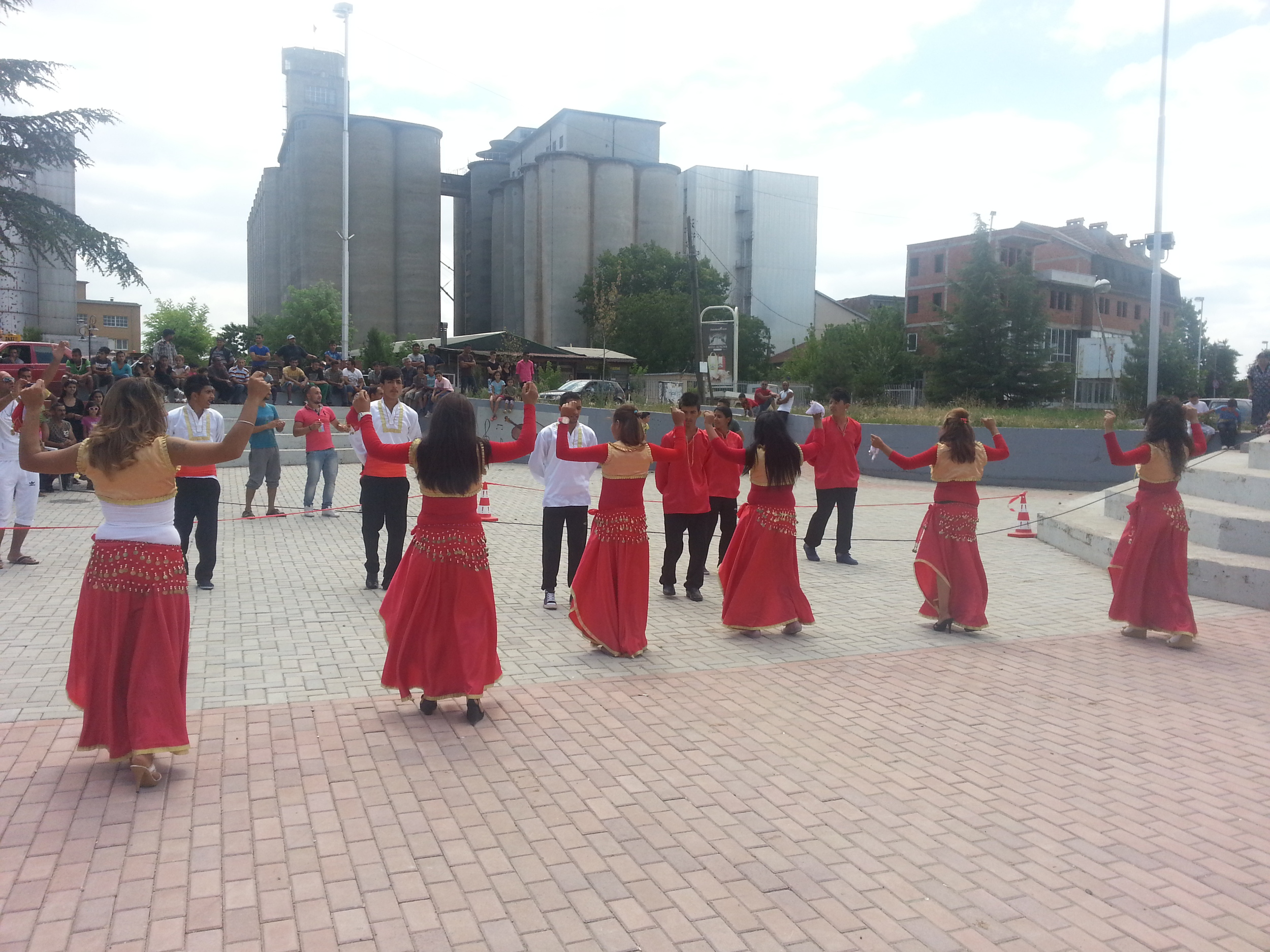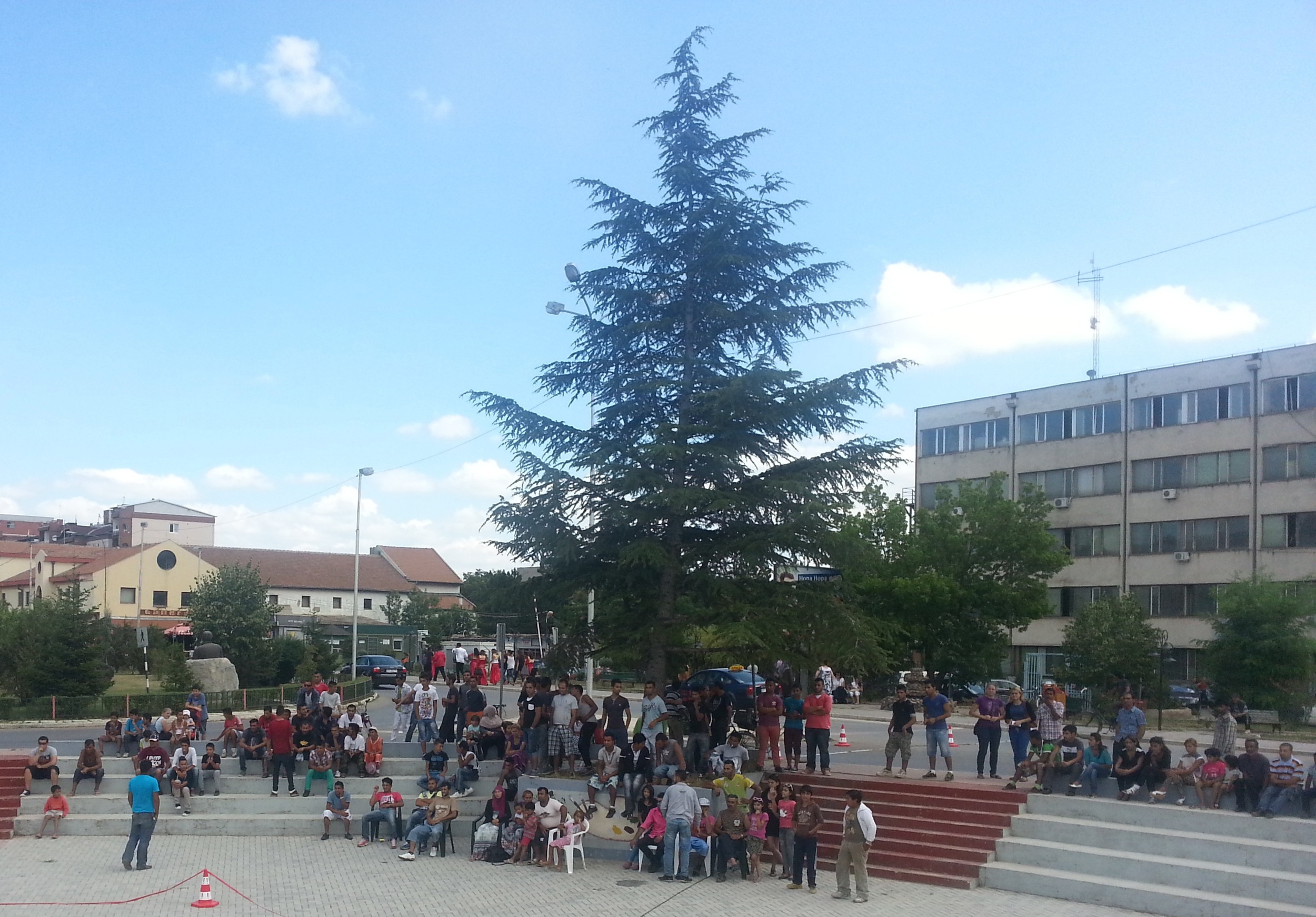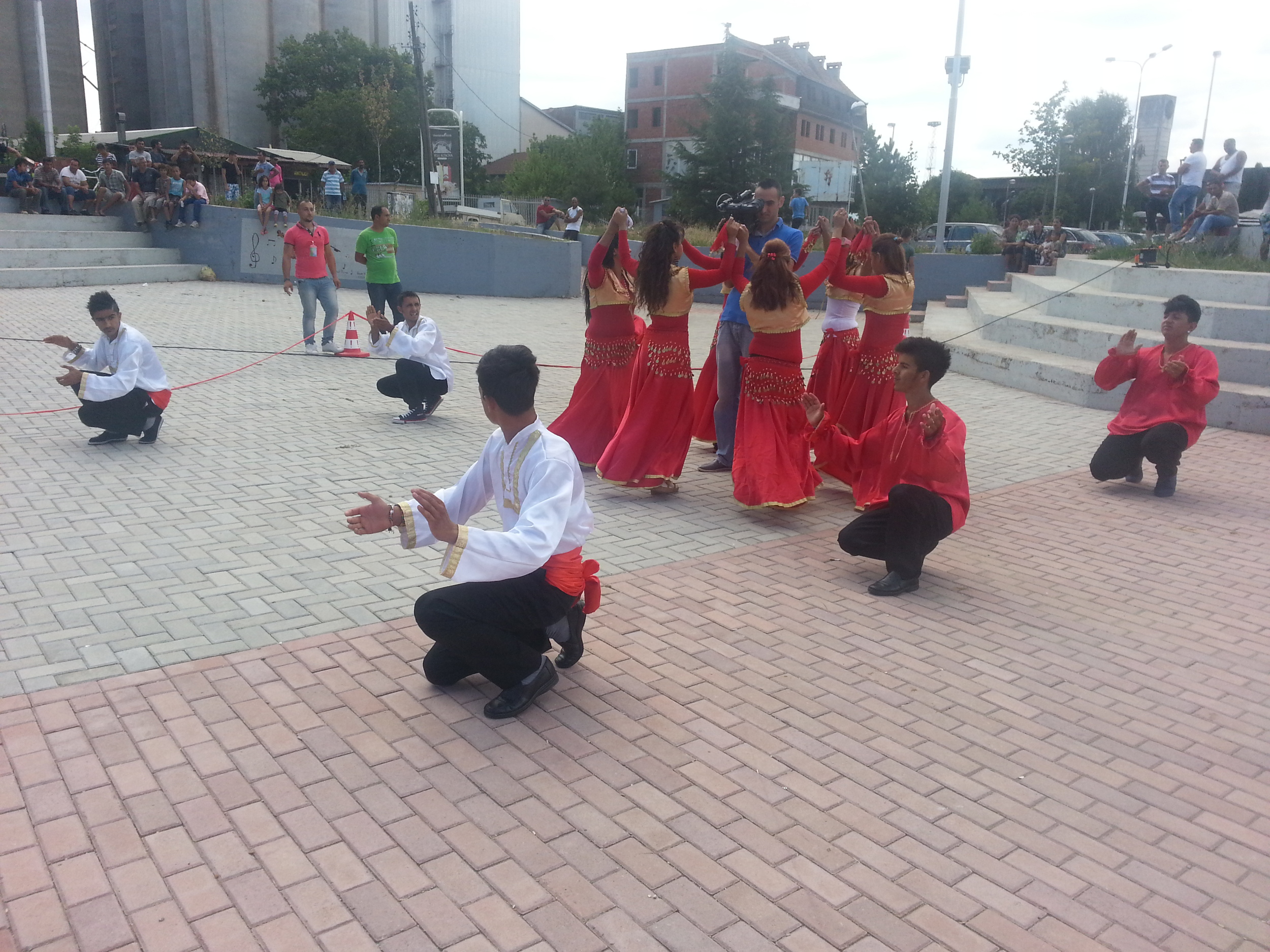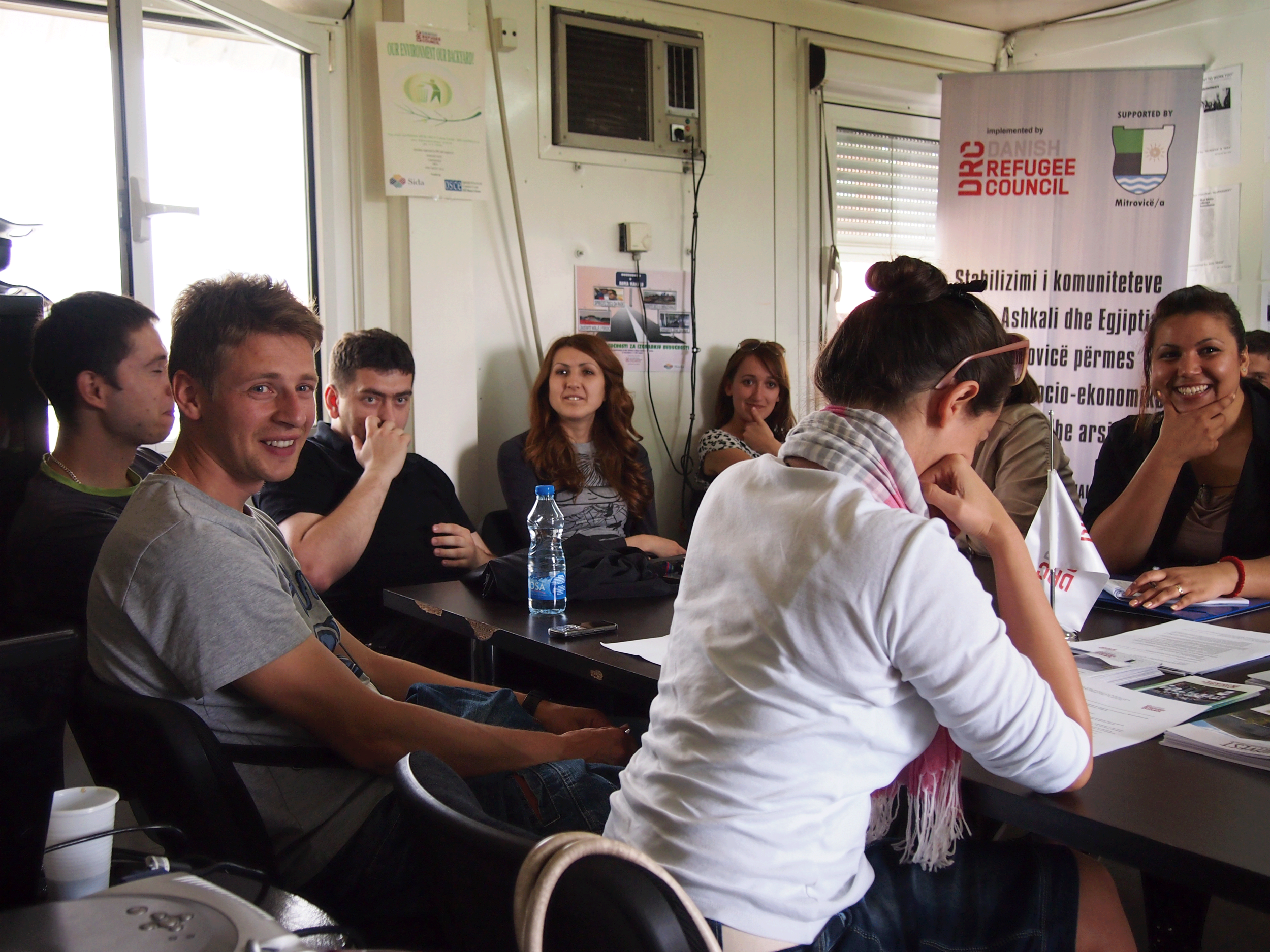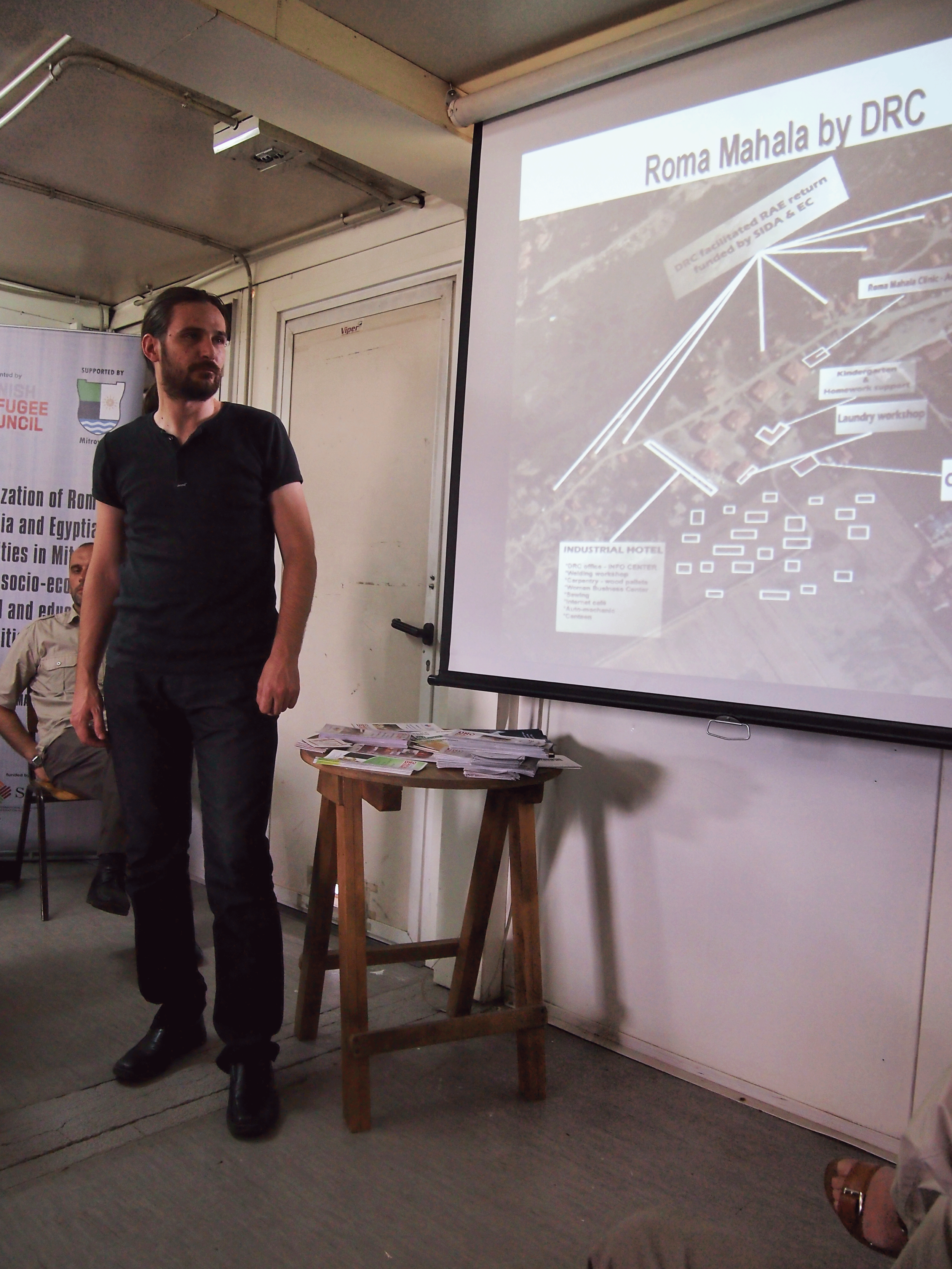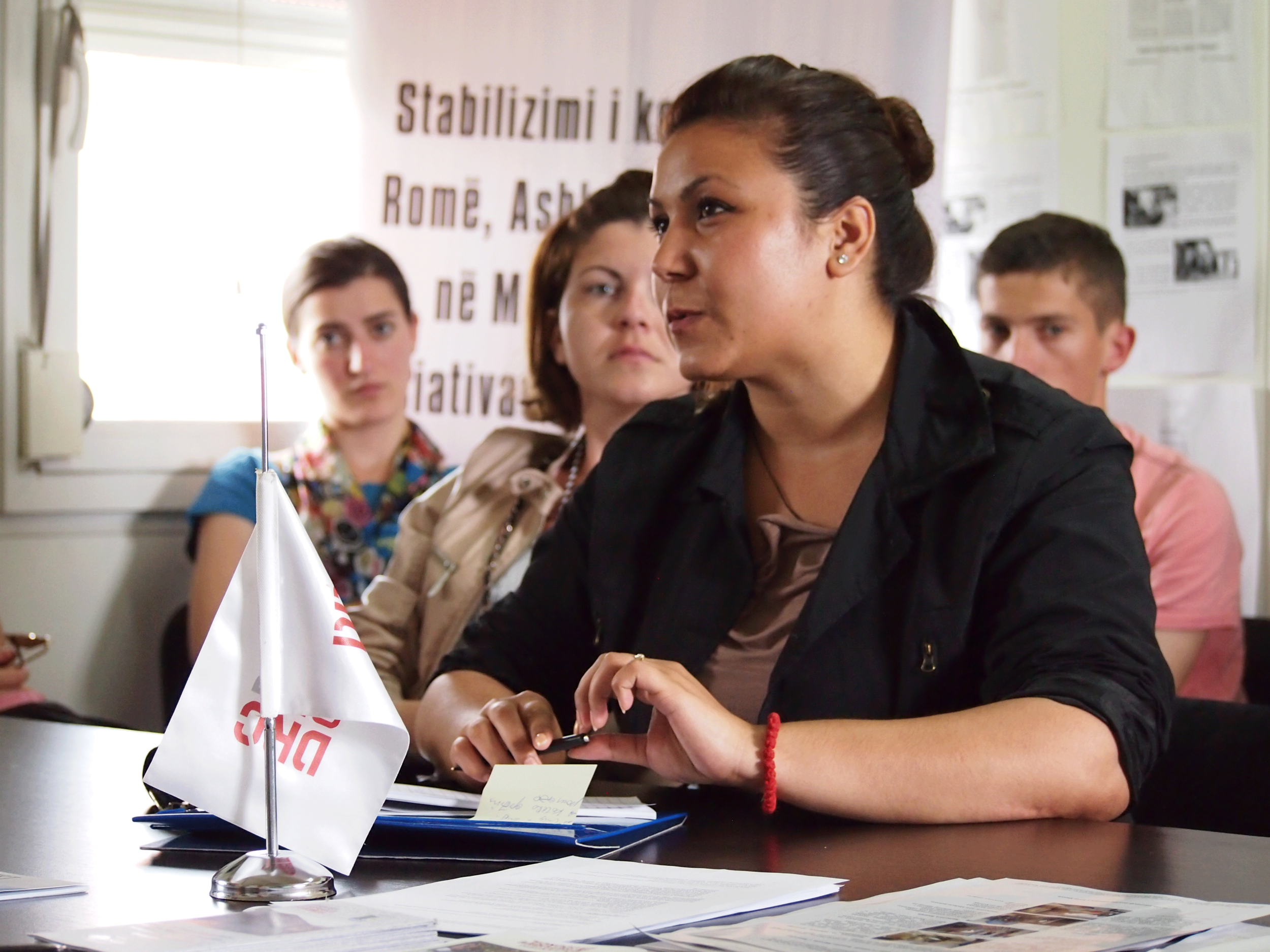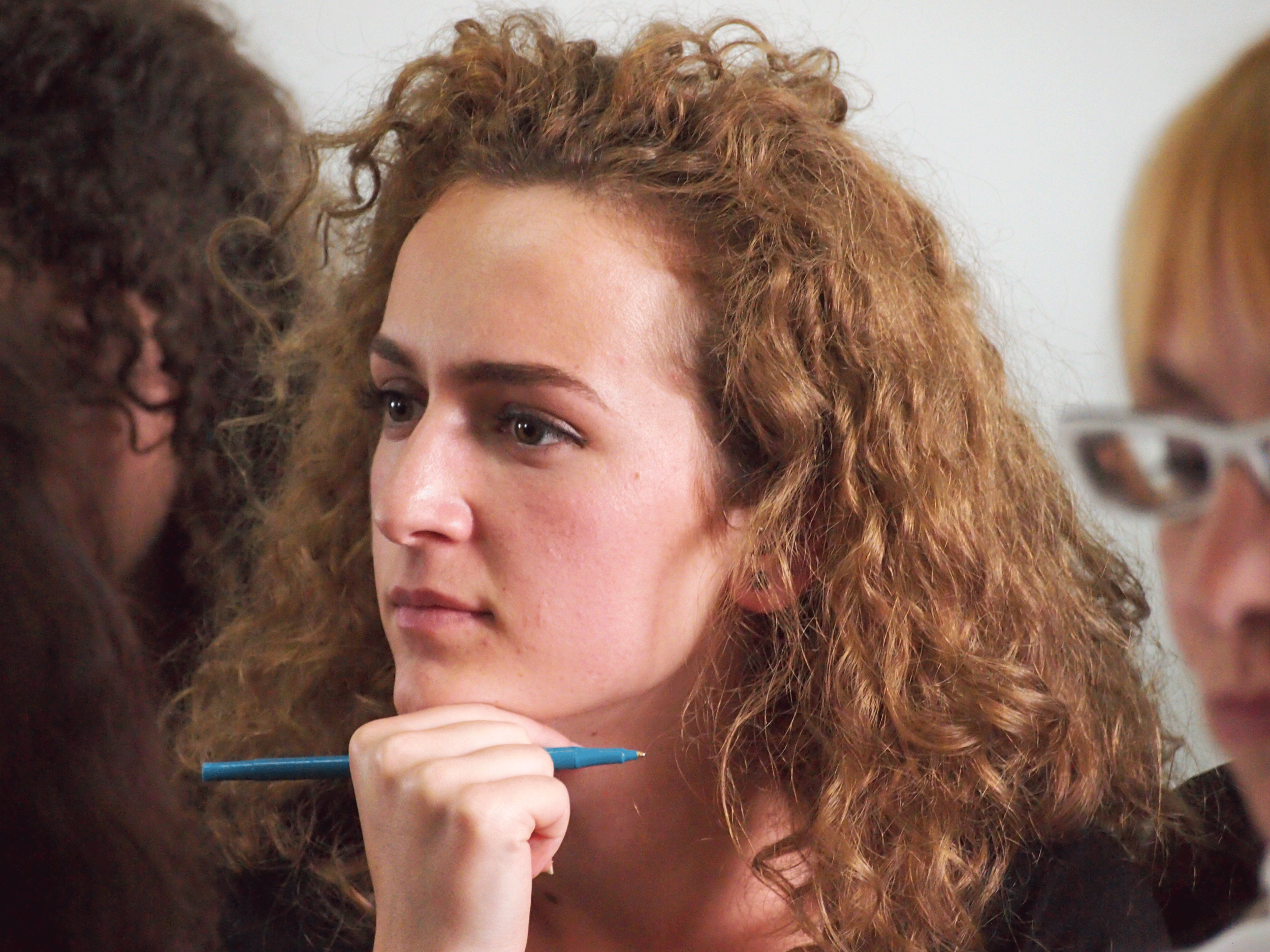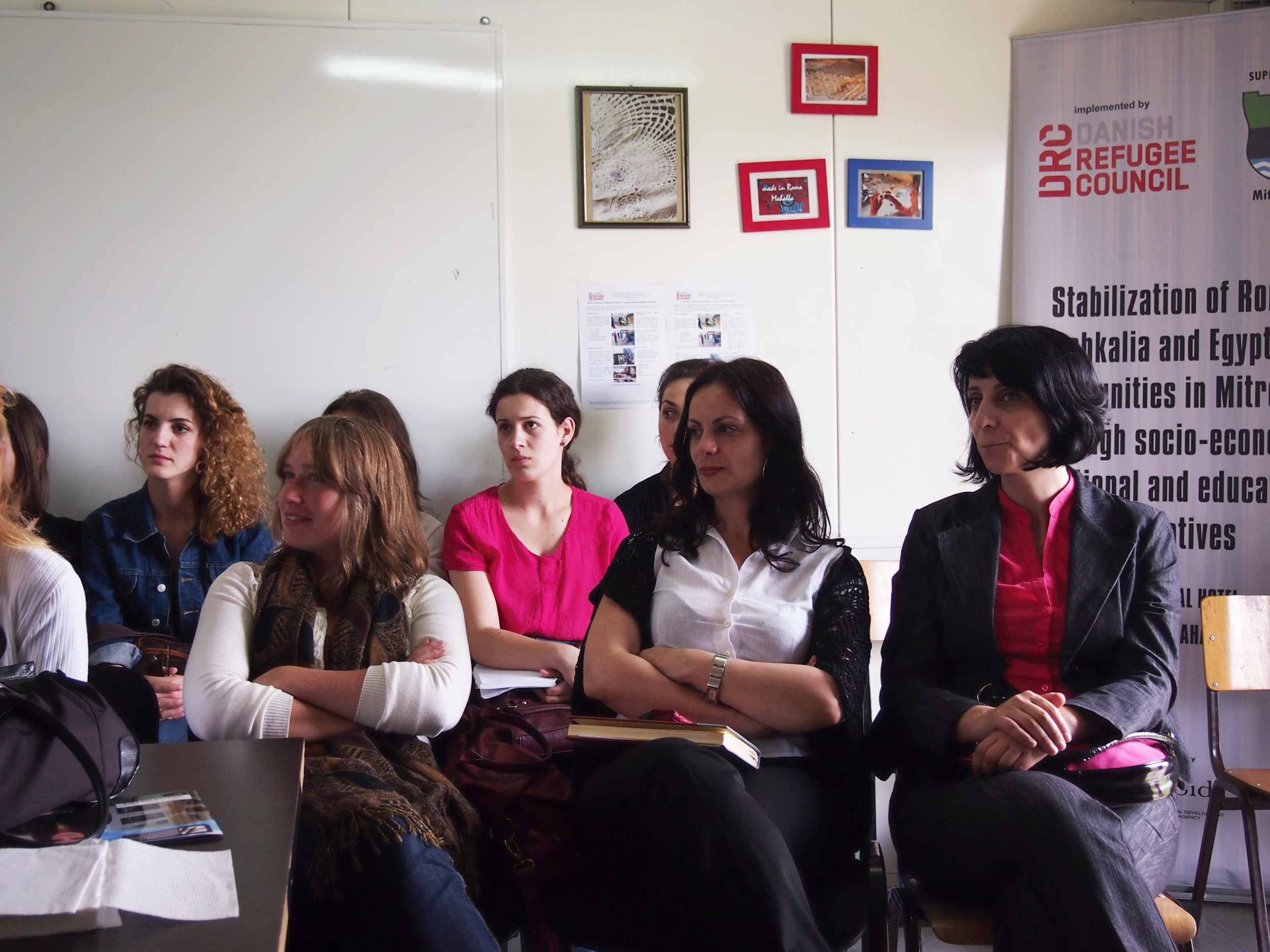If you’ve been in Mitrovica recently you’ll have seen bright yellow cages in strategic locations in the city centre. You may also have seen women swinging classy crocheted handbags or tote bags in funky colours and made from a strangely familiar material.
It’s a new project being led by the NGO Lulebora with the Danish Refugee Council (and the support of the municipality for the placement of the cages) to recycle plastic bags by collecting, washing, drying, cutting and… crocheting them into new and gorgeous creations. The cages have been set out as collection points where the citizens of Mitrovica can leave the plastic bags they would otherwise throw away to landfill, choking Kosovo’s natural environment. Instead, the bags are now collected as valuable raw materials for a project set up in the Roma Mahalla in October last year. Twenty one women have been trained in how to crochet, shown examples of products that can be made from crocheting plastic yarn, and have set up a small enterprise turning Kosovo’s ‘national flower’ - the plastic bags which bloom in every field and across every piece of waste ground – into something useful, and income-generating.
It requires a lot of plastic bags to be cut and knotted into these new uses, and a lot of work. The women say that they can get on with the crocheting at home in between other obligations with their households and family but working like this takes about three days to make just one of the bags. They produce a range of designs, some following patterns they’ve borrowed from abroad, and others using their own imagination to create shoulder bags, purses, baskets and floor mats (particularly useful for the bathroom because of course the feature which makes the cancer of plastic so toxic to the environment, where it takes 400 years to break down, is what makes it waterproof). They have been clever with the colours they use, sticking to single tone or two-tone designs, and – in the case of one particularly chic evening bag – using old black bin bags. They tell me they’ve even experimented with cassette tape and video tape for finer work. I love the idea of an iPod pouch made from old cassette tapes I can’t listen to any more.
As well as working individually at home, the women also come together three times a week for a few hours to talk and work together. In the UK such chances for women to work together on their handcrafts and have a gossip have been nicknamed ‘stitch and bitch’ sessions, but these women are serious, telling me about the psychosocial support and health education they’ve received through the project when they’ve come together each week.
The bags are reasonably priced, at four or five euros, depending on size and the complexity of the design. They’ve gone on sale at various handcraft fairs where the women have exhibited, and to visitors at the centre in Roma Mahalla. They’re also available in two shops in Mitrovica, and the women hope to expand the project, especially as the weather warms up later in the year and customers will want to have waterproof bags to take to the seaside with them. ‘We could go on a work trip to Durrës and sell along the beach,’ suggests Bukurije, the natural leader of the group, with a smile. She is from Roma Mahalla and has worked on the project as a volunteer to develop sales and marketing opportunities for them all. She says she doesn’t mind putting in the extra work because ‘the person who works most gains most’. Each woman only gets paid when a product she has made personally gets sold which encourages hard work and careful craftsmanship - and a moral dilemma for me trying to choose what to buy as I’m watched carefully by the group of jealous producers. I walk away with six different bags all knitted and knotted from a waste product that would otherwise be thrown away. Plastic has never been so beautiful.
Elizabeth Gowing is a founder of The Ideas Partnership, a Kosovan NGO working on educational, cultural and environmental projects. She is also the author of Travels in Blood and Honey; becoming a beekeeper in Kosovo (Signal Books, 2011). She can be reached at theideaspartnership@gmail.com
